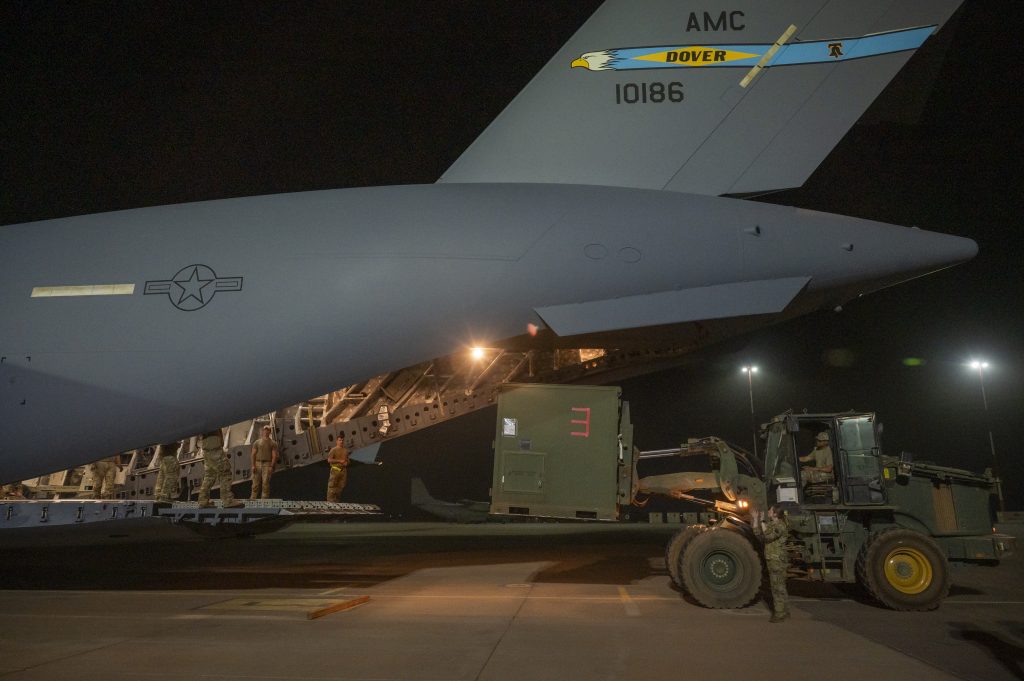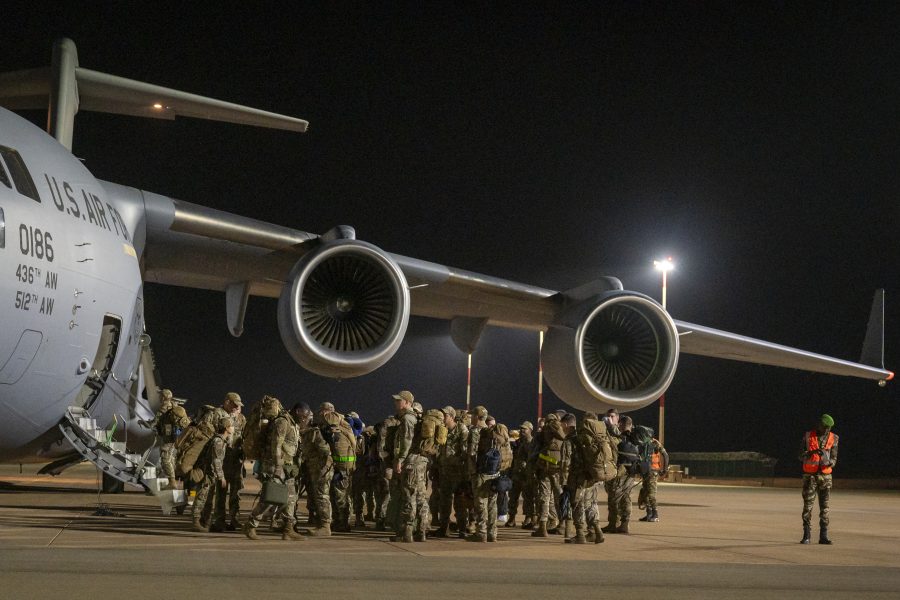The last few U.S. troops departed Air Base 101 in Niger on July 7, flying on an Air Force C-17 Globemaster III.
The moment marks a milestone in the ongoing effort to withdraw American forces from Niger, where they have conducted key counterterrorism missions from two air bases.
After Niger’s ruling junta scrapped a military cooperation pact with the U.S. in March, the military rulers ordered all American forces—nearly 1,000 military personnel—to leave the country no later than Sept. 15. Starting last month, U.S. troops and essential assets from Air Base 101 have been moved out, with the control of the installation area now returned to the Nigerien government.
“Today we reflect positively on the past 15 years of security cooperation and shared sacrifice by U.S. forces and Nigerien forces,” U.S. Air Force Maj. Gen. Kenneth Ekman, U.S. Africa Command Director of Strategy, Engagement, and Programs, said in a statement. “I am grateful for the close collaboration with our Nigerien hosts to support the safe, orderly, and responsible withdrawal of U.S. forces commemorated today at Air Base 101.”

The two U.S. air bases in Niger have been key locations for Washington’s counterterrorism missions for more than a decade. With the closure of the base in the country’s capital of Niamey, the focus shifts to finalizing the withdrawal from Air Base 201 in central Niger, which the U.S. spent over $100 million to build only a few years ago. The base enabled the U.S. to fly drones, such as Air Force MQ-9s, to gather intelligence on militant groups in the region, including al-Qaeda and ISIS affiliates.
Ekman told the Associated Press fewer than 500 remaining personnel in Air Base 201 will exit the nation in August, ahead of the September deadline. A small number of U.S. military personnel have already been relocated to other countries in West Africa, but the majority will be initially relocated to Europe.
“Both U.S. and Nigerien officials are dedicated to completing a safe, orderly, and responsible withdrawal by Sept. 15,” a joint statement from the Pentagon and the Department of National Defense of the Republic of Niger noted, highlighting their commitment to the protection of the American troops.
Since Niger’s elected government was overthrown by a military junta in a coup in July 2023, the National Council for the Safeguard of the Homeland (CNSP) was installed to take control of the nation. Pentagon officials say they remain hopeful they can continue their anti-extremist mission in the Sahel nations of West Africa. In May, a senior military official, citing Nigerians, clarified that this move does not signify the end of relations, but rather the need to renegotiate.
U.S. officials also have emphasized that despite the withdrawal, the relationship between American forces and the Nigerien military “remains strong,” adding that the withdrawal of forces comes on the heels of “working against the backdrop of much more challenging political situation.” The officials have reiterated the two nations will continue to work together regarding issues of mutual interest.
Still, concerns linger as to how Russia and Iran may potentially exploit Niger’s unrest. Experts highlighted that other recent coups in West Africa in Mali and Burkina Faso were followed by a further rise in jihadist violence, geopolitical tensions with Western security allies, and, notably in Mali, the arrival of the Russian mercenary Wagner Group. Observers also note widespread anti-Western sentiment and public weariness with current governments across the violence-stricken Sahel nations.
U.S. officials have also raised concerns about the Nigerien junta’s potential decision to grant Iran access to Niger’s uranium reserves for its nuclear program. The Pentagon said American officials have held direct discussions with the junta regarding their intentions to foster relationships with Moscow and Tehran, although no agreements have been finalized.


